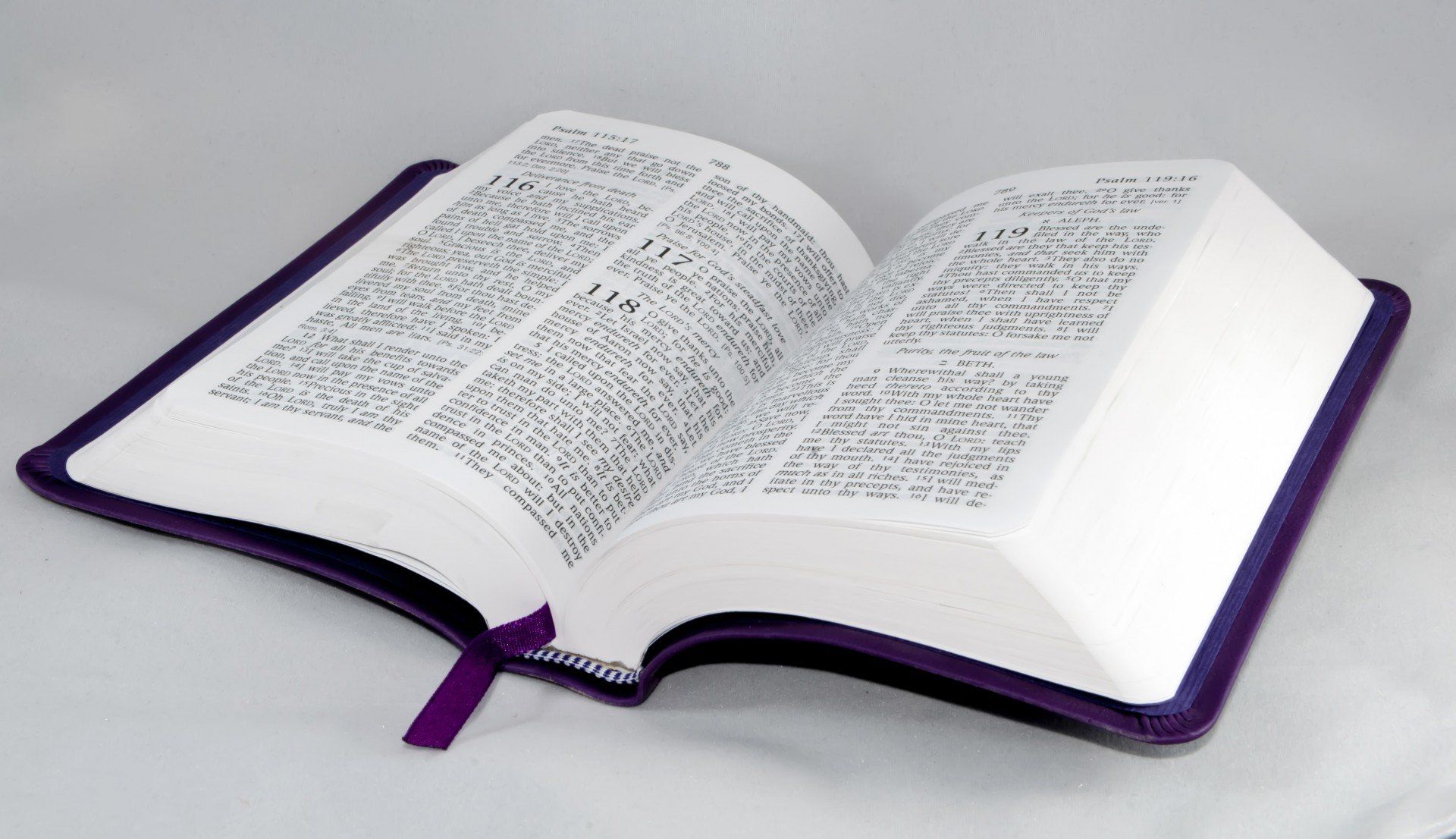
NINETEEN WAYS TO BE HUMBLE Jeremy Taylor’s years are 1613 to 1667. He was English and lived in the time when England was going back and forth between the Catholics and the Protestants. He spent some time in prison but wound up being a bishop. He’s best known for two books. One is called Holy Living and the other is called Holy Dying. In Holy Living he gives nineteen rules for living humbly. Number one: "Do not think better of yourself because of any outward circumstance that happens to you." Number two: "Humility does not consist in criticizing yourself for wearing ragged clothes." "Or in walking around submissively wherever you go. Humility consists in a realistic opinion of yourself, namely that you are an unworthy person." Number three: "When you hold this opinion of yourself that you are an unworthy person, be content that others think the same of you." Fourth: "Nurture the love to do good things in secret concealed from the eyes of others and therefore not highly esteemed because of them." Number five: "Never be ashamed of your birth, of your parents, your occupation or your present employment or the lowly status of any of them." Number six: "Never say anything directly or indirectly that will provoke praise or elicit compliments from others." Number seven: "When you do receive praise for something you have done, take it indifferently and return it back to God, the giver of the gift, the blesser of the action, the aid of the project. Always give God thanks for making you an instrument of his glory for the benefit of others." Number eight: "Make a good name for yourself by being a person of virtue and humility." Number nine: "Do not take pride in any praise given to you. Rejoice in God who gives gifts others can see in you but let it be mixed with a holy respect so that this good does not turn into evil." Number ten: "Do not ask others your faults with the intent or purpose being to have others tell you of your good qualities." Number eleven: "When you are slighted by someone or feel undervalued, do not harbor any secret anger, supposing that you actually deserved praise and that they overlooked your value or that they neglected to praise you because of their own envy. Do not try to seek out a group of flatterers who will take your side and whose vain noises and empty praises you may try to keep up your high opinion of yourself." Number twelve: “Do not entertain any of the devil's whispers of pride such as that of Nebuchadnezzar, ‘Is this not great Babylon which I have built for the honor of my name and the might of my majesty and the power of my kingdom?’” Number thirteen: "Take an active part in the praising of others, entertaining their good with delight. In no way should you give in to the desire to disparage them or lessen their praise or make any objection. You should never think that hearing the good report of another in any way lessens your worth." Number fourteen: "Be content when you see or hear that others are doing well in their jobs and with their income even when you are not. In the same manner be content when someone else's work is approved and yours is rejected." Number fifteen: "Never compare yourself with others unless it be to advance your impression of them and lower your impression of yourself." Number sixteen: "Do not constantly try to excuse all of your mistakes. If you have made a mistake or an oversight or an indiscretion, confess it plainly, for virtue scorns a lie for its cover." Number seventeen: "Give God thanks for every weakness, fault, and imperfection you have. Accept it as a favor of God, an instrument to resist pride and nurse humility. Remember if God has chosen to shrink your swelling pride, he has made it that much easier for you to enter in through the narrow way." Number eighteen: "Do not expose other's weaknesses in order to make them feel less able than you." Number nineteen: "Remember that what is most important to God is that we submit ourselves and all that we have to him. This requires that we be willing to endure whatever his will brings us, to be content in whatever state we are in, and to be ready for every change.” Source: “Soul Work”, Randy Harris

Matthew 7:1-6 "Judge not that you be not judged" is spouted by a lot of people who have no earthly idea what Jesus meant by that. It just happens to fall into line with the spirit of our time. What was Jesus saying in Matthew 7 ? I think one of the key verses in understanding it is Matthew 5:20 : "For I say to you, that unless your righteousness exceeds the righteousness of the scribes and Pharisees, you will by no means enter the kingdom of heaven." We must have a different kind of righteousness from what the scribes and Pharisees had. They wore theirs on their sleeves; it was superficial. I. Don’t Judge (Matthew 7:1-2) "Judge not, that you be not judged. For with what judgment you judge, you will be judged; and with the same measure you use, it will be measured back to you." John Stott put it this way: "Jesus does not tell us to cease to be men but to renounce the presumptuous ambition to be God (by setting ourselves up as judges)." That’s what drives this overly critical attitude: a belief that I can see as God sees. I can see your motives. That’s what Jesus wants to eliminate. II. Searching For Specks (Matthew 7:3-5) "And why do you look at the speck in your brother’s eye, but do not consider the plank in your own eye? Or how can you say to your brother, ’Let me remove the speck out of your eye’; and look, a plank is in your own eye? Hypocrite! First remove the plank from your own eye, and then you will see clearly to remove the speck out of your brother’s eye." There’s another problem with Pharasaic righteousness. Not only was it overly critical, but it was also hypocritical. It was two-faced. We tend to look past any shortcomings. And that’s the hypocrisy Jesus was denouncing. III. The Right Way to Judge (Matthew 7:6) "Do not give what is holy to the dogs; nor cast your pearls before swine, lest they trample them under their feet, and turn and tear you in pieces." The harsh, critical spirit is obviously wrong and some have tried to get so far away from it that they’ve gone to the opposite extreme, which is permissiveness. The holders of this position point to the first five verses of this chapter as their proof text; we are not to judge. But, Jesus doesn’t end his discussion of judging with the command "judge not". He goes on to say, "Do not give dogs what is sacred; do not throw your pearls to pigs." In John 7:24 , Jesus said, "Do not judge according to appearance, but judge with righteous judgment." In 1 John 4:1 , John tells us to "test the spirits, whether they are of God." The command not to judge others doesn’t mean that we can’t see the sinfulness of certain actions. So what is the message of Matthew 7:1-6 ? It’s a warning for us to avoid the extremes of judgment. But neither are we to overlook sin. We need to be able to recognize sin for what it is.

2 Timothy 3:16-17 The authority of the scriptures is one of our very foundations. It is our desire to understand the word of God more completely and to use it as a guide as we strive to apply it to our daily lives. A lot of people in this country will affirm the Bible as God’s written word, but then seem to know or do little about it. In a recent Gallup Poll, 82% of Americans said they believed the Bible was in some sense the word of God -- I’m amazed at how high that number is -- yet half of them couldn’t name one of the four gospels. I share all that with you not to put anyone down, but to make the observation that it’s one thing to say, “I believe the Bible is the Word of God” and something else altogether to believe that truth such that it makes a difference in what we learn and how we live. The Bible is the foundation for what we believe and how we act. We want to be known as a church that exalts Jesus Christ and establishes the direction of our lives from the teaching of the Bible, God’s word. The Bible Is Inspired: “All Scripture is given by inspiration of God, and is profitable for doctrine, for reproof, for correction, for instruction in righteousness, that the man of God may be complete, thoroughly equipped for every good work.” (2 Timothy 3:16-17). Peter says in 2 Peter 1:20-21: “knowing this first, that no prophecy of Scripture is of any private interpretation, for, but holy men of God spoke as they were moved by the Holy Spirit.” The Bible is Infallible: That is to say that everything that it affirms is absolutely true. If it says something about Jesus Christ, what it says is true. Because it is inspired, because it is the Word of God, it is infallible. Everything it says historically is true. Everything it says prophetically is true. Everything it gives us in terms of direction in life is absolutely true. It is infallible. That’s why it’s our standard for what we believe and practice. The Bible is Sufficient: Paul said, “ But you must continue in the things which you have learned and been assured of, knowing from whom you have learned them, and that from childhood you have known the Holy Scriptures, which are able to make you wise for salvation through faith which is in Christ Jesus.” (2 Timothy 3:14-15) The scriptures not only contain what we need to find salvation; they contain what we need to be made complete or mature. The Bible is Authoritative: Isaiah 1:2 says, "Hear, O heavens, and give ear, O earth, for the Lord hath spoken." This is an authoritative book. Right and wrong is not determined by a popularity contest, and it’s not determined by a poll, it’s determined by what God has said. The Bible is Effective: In other words, it’s powerful. It changes lives. In Hebrews 4:12 , " For the Word of God is living and effective, or active, and sharper than any two-edged sword." Given that the Bible is inspired, infallible, sufficient, authoritative and effective, it makes sense that it demands a response from us.






